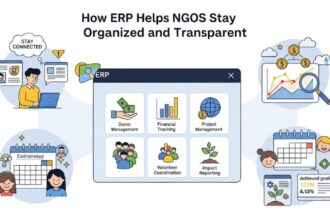Mumbai – India’s digital marketing services industry continues its upward trajectory as businesses shift marketing investments toward online channels, creating growth opportunities for agencies across the spectrum from large multinational firms to specialized local providers.
The sector’s expansion has benefited companies like EON SEO Hub, which has positioned itself within the growing market by offering website development, search engine optimization, and mobile application services to businesses seeking comprehensive digital solutions.
Technical SEO Demand Drives Service Evolution
Recent industry analysis shows increased demand for technical SEO services as search engines deploy more sophisticated ranking algorithms. This shift has prompted agencies to develop specialized capabilities in website performance optimization, mobile compatibility assessments, and comprehensive technical audits.
The changing landscape has influenced how agencies structure their service offerings. Many providers now combine project-based website development with ongoing SEO retainer agreements, allowing clients to access both immediate deliverables and long-term optimization support.
Free Tools Strategy Gains Industry Adoption
A notable trend among digital marketing agencies involves developing proprietary tools that serve dual purposes: demonstrating technical expertise while generating potential client leads. EON SEO Hub has implemented this strategy through offerings including their website grader and keyword research utility.
Industry observers note that such tools help agencies differentiate themselves in a competitive market while providing value to prospects who may not yet be ready to engage paid services.
Market Structure Favors Integrated Service Providers
The digital marketing sector includes both large agencies with extensive resources and smaller specialized firms focusing on particular service areas. Companies offering multiple services under unified management have found success appealing to businesses that prefer consolidated vendor relationships over coordinating with multiple specialists.
This trend reflects broader business preferences for simplified vendor management, particularly among small and medium enterprises that lack dedicated procurement resources for managing multiple agency relationships.
Diverse Client Base Reduces Sector Risk
Successful agencies typically serve clients across multiple industries including retail, healthcare, professional services, and technology companies. This diversification strategy helps reduce dependence on any single economic sector while providing exposure to varied digital marketing challenges and requirements.
Regional market factors also influence service delivery approaches. Local businesses often require different strategies than companies targeting national or international markets, particularly regarding local SEO optimization and region-specific content development.
Infrastructure Investment Reflects Industry Maturation
Technology requirements for digital marketing agencies have increased as services become more data-intensive and clients demand detailed performance reporting. This has driven industry-wide investment in analysis tools and reporting systems that support client communication and campaign optimization.
The infrastructure improvements reflect the sector’s maturation from basic service delivery to sophisticated, data-driven marketing support that integrates multiple digital channels and provides measurable business outcomes.
Client Acquisition Methods Adapt to Digital Landscape
Lead generation in the digital marketing sector typically combines website-based inquiries, referral programs, and direct business development activities. Many agencies have adopted content marketing strategies that demonstrate expertise while attracting potential clients through educational resources and free tools.
This approach aligns with broader B2B marketing trends where prospects research service providers extensively before initiating contact, making educational content and demonstrated expertise crucial for successful client acquisition.
Competitive Pricing Balances Market Demands
Pricing structures across the industry vary significantly based on service complexity, client size, and project duration. Agencies must balance competitive positioning with profit margin requirements while investing in ongoing technology upgrades and staff development to maintain service quality.
The pricing challenge becomes more complex as agencies expand service offerings, requiring careful cost analysis to ensure comprehensive packages remain profitable while providing client value.
Industry Challenges Drive Continuous Adaptation
The sector faces ongoing operational challenges including rapid algorithm changes, client expectation management regarding timelines and results, and maintaining competitive service offerings as new technologies emerge. Successful agencies demonstrate ability to adapt methodologies quickly while maintaining consistent service delivery standards.
These challenges require significant ongoing investment in staff training, technology updates, and process refinement to ensure client satisfaction and retention in an increasingly competitive market.
Future Growth Trends Point to Continued Expansion
Market analysis suggests continued growth in demand for technical SEO services, mobile optimization, and integrated digital marketing strategies. Companies developing expertise in these areas while maintaining strong client service capabilities appear well-positioned to benefit from ongoing market expansion.
The trend toward integrated digital marketing solutions suggests that agencies capable of delivering comprehensive services across multiple channels may have competitive advantages over specialized providers as businesses seek to streamline their digital marketing management.





